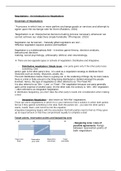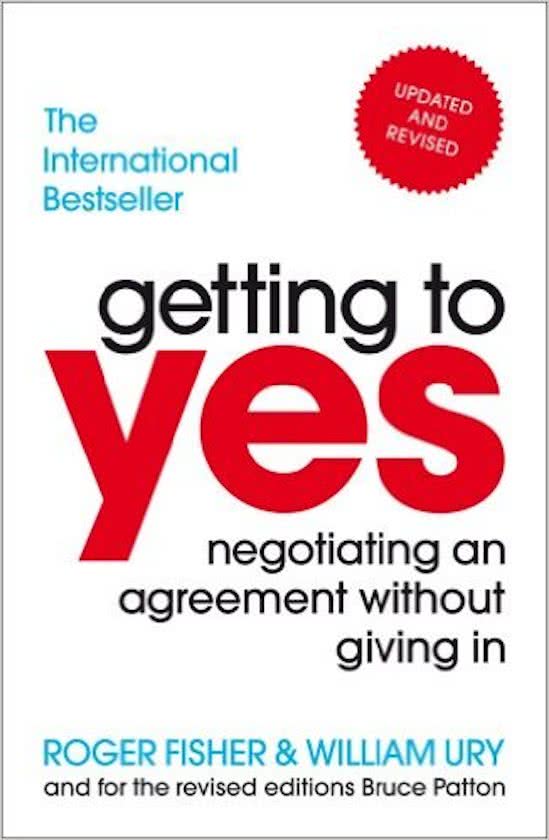Negotiations - An Introduction to Negotiations
Essentials of Negotiations
‘‘A process in which two or more parties exchange goods or services and attempt to
agree upon the exchange rate for them (Robbins, 2001)
‘Negotiation is an interpersonal decision-making process necessary whenever we
cannot achieve our objectives single-handedly’ (Thompson, 2015)
Negotiation can be learned – ‘Naturally gifted negotiators are rare’ -
‘Effective negotiation requires practice and feedback’
Negotiation is a multidisciplinary field – it involves game theory, decision analysis,
behavioural decision
making, social psychology, philosophy (ethics) and neurobiology.
There are two opposite types or schools of negotiation: Distributive and Integrative.
- Distributive negotiation / Single issue - one party gains only if the other party loses
something. One
party’s gain is the other party’s loss. It is used as a negotiation strategy to distribute fixed
resources such as money, resources, assets, etc.
The term distributive means; there is a giving out; or the scattering of things. By its mere nature,
there is a limit or finite amount in the thing being distributed or divided amongst the people
involved. Hence, this type of negotiation is often referred to as ‘The Fixed Pie’.
It is also referred to as ‘Win – Lose’, or ‘Fixed – Pie’ negotiation because one party generally
gains at the expense of another party. On the other side, the contrary is: 'Win - Win' negotiation
– often referred to as Integrative Negotiation.
in distributive bargaining, you don’t take the other party’s needs into consideration when making
a deal.
- Integrative Negotiation – also known as ‘Win-Win’ negotiations.
There are some negotiations in which it’s in your interest to find a solution in which both parties
feel as if they gained something in the deal. Both the parties win - you take the other party’s
wants, needs, fears, and concerns into the equation.
integrative bargaining begins with the assumption that both parties need to feel as if they gave
up an equal amount or that they compromised equally to complete a deal
Target points, reservation points and bargaining zone
- Bargaining zone / zone of
possible agreements: Range
between reservation points of
both negotiators
, - Target/aspiration point: Price you would be happy with. Three problems might arise
when determining it:
- Underaspiring negotiator: Settles for too low; often, frst ofer is accepted immediately
- Overaspiring negotiator: Wants to settle for too high; refuses to make consessions
- Grass is greener negotiator: Doesn’t know what he/she wants to settle for, only that
it’s more/diferent than what the other party is willing to ofer (reactive)
- Reservation point: Price at which you are indiferent between getting the deal or
not getting the deal (worst acceptable outcome) – the lowest you can go.
Consider the consequences of failing to reach an agreement, and know your
alternatives
Determine your BATNA (Your Best Alternative To a Negotiated Agreement) and
quantify it.
Your BATNA protects you against accepting an agreement you should reject /
rejecting an agreement you should accept.
Characteristics of the BATNA:
- Determines lowest value acceptable
- If you don’t reach agreement, settle for your BATNA
- Any deal higher than your BATNA is better than impasse.
Having a good BATNA increases your negotiating power. If you know you have a good
alternative, you do not need to concede as much, because you don't care as much if you get a
deal. You can also push the other side harder.
‘Falling in love’ rule – never fall in love with one job, house, etc. – always keep multiple options
open, and constantly try to improve your BATNA.
Your BATNA is not something that you wish for; It is determined by objective reality!
Don’t let your BATNA be influenced by the other party’s persuasion techniques. You BATNA
should only change as a result of objective facts and evidence. So…
1. Brainstorm your alternatives
2. Evaluate each alternative
3. Attempt to improve your BATNA
4. Determine your reservation price
- Lose-Lose scenario - fail to recognize or exploit more creative options that would lead
to a 'win-win'
negotiated outcome.
In a Lose-Lose scenario either both parties concede bargaining positions outside their target
ranges. If the negotiators fail to reach an agreement, both parties may end up in worse positions
than when they started the negotiations, this is often included as a lose-lose outcome.





